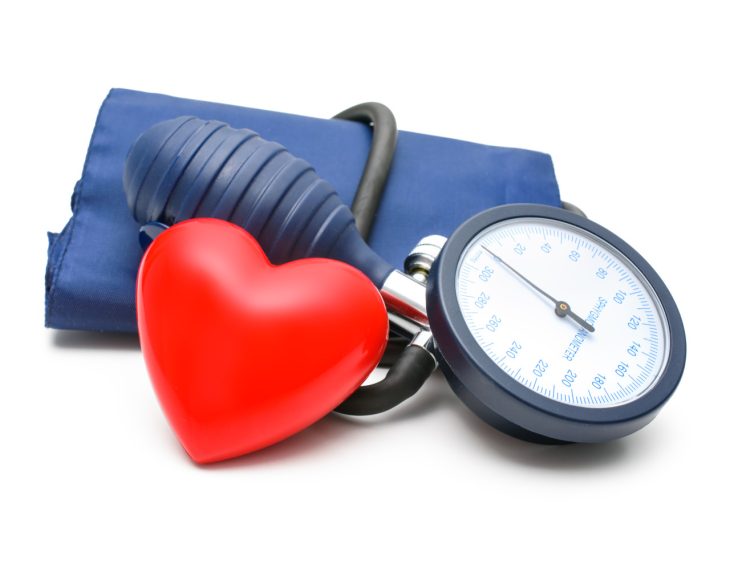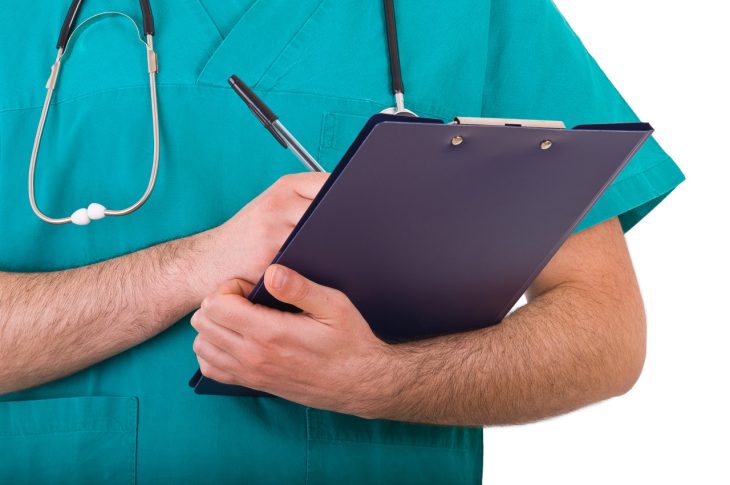What Is Medical Detox? How It Works & Where to Find Help

Detoxification is the process of eliminating a substance from the body. When you’re experiencing an alcohol or drug dependency, the process of withdrawing from these substances can be both uncomfortable and dangerous. This is why it’s often done under the watchful eye of a physician, nurse or other healthcare professional.
Take the first step toward recovery today!
What is Medical Detox, and What is a Medical Detox Center?
Medical detox is a professionally managed process where individuals receive FDA-approved medications, supportive care like I.V. fluids and hydration, nutritional supplements and comfort measures. They’re closely monitored by qualified medical and addiction specialists.
A medical detox center is a facility that offers inpatient or outpatient supervised medical detox.
An inpatient medical detox facility provides around-the-clock supervision and support by specially trained medical and addiction professionals. Individuals are monitored for physical and psychological complications that often arise during the process and administer appropriate interventions.
These interventions include managing withdrawal symptoms, providing comfort measures and emotional support. At the same time, they prepare the individual for the next step in the recovery process: a comprehensive alcohol or substance use disorder treatment program.
An outpatient detox facility provides detox support without requiring an individual to reside at the facility around the clock. Participants in these programs often visit the facility regularly, even daily, to be monitored by medical or addiction professionals.
When needed, individuals receive medications to ease withdrawal symptoms and cravings and find emotional support that carries them through the stages of recovery.
What is Medical Detox Like?
An important component of a medical detoxification facility is close supervision. Individuals in inpatient detox programs can expect to have their vital signs monitored regularly and receive medications to ease withdrawal symptoms.
Other supportive measures are offered to make the process safer and more tolerable. This 24/7 monitoring allows complications to be caught early and treated as appropriate. Peer support provides the emotional encouragement needed to get through the process.
Individuals in an outpatient detox program receive close supervision, medical intervention and emotional support each time they visit the facility, usually daily. These types of programs are best for individuals with mild to moderate addiction and for those who have a strong at home support system.
Who Should Go to a Medical Detox Center?
Deciding whether an individual needs medical detox depends on several factors. Medical detox is important for those with certain addictions, including alcohol, opioids, benzodiazepines and certain stimulants and synthetic drugs.
Withdrawal from these substances can be dangerous and extremely uncomfortable. Close medical supervision allows for medical support and early interventions if complications arise.
Individuals with moderate to severe addiction, who have been using for long periods or who have polydrug use should consider inpatient medical detox. Anyone with co occuring mental health disorders, certain medical conditions, or a history of relapse or is considered a suicide risk would also benefit from close medical care featured in detox programs.
Folks who need medical support but not 24/7 supervision can also participate in outpatient detox programs that provide medical assessments and medications alongside emotional support. The advantage of outpatient care is flexibility that allows you to maintain work or family commitments.
Find a Medical Detox Center Near You
Finding the right detoxification centers doesn’t have to be hard.
Don’t wait to get help. Call today, and find detox centers near you.
Many facilities offer safe and supportive environments where individuals receive medications, comfort measures and medical monitoring to combat withdrawal symptoms and curb cravings. Most importantly, medical professionals at credible medical detox centers usually perform interventions should any complications arise.
How Medical Detox Works (Step by Step)
Wondering how to get set up with medical detox? It might be easier than you think.
- Phase 1: Intake Exam and Medical Screening
Before starting any medical detox program, candidates meet with intake professionals who’ll conduct thorough exams that include vital sign monitoring and physicals.
They’ll review medication and medical history to determine if conditions related to addiction, such as infection, signs of withdrawal, liver damage, malnutrition or dehydration, are present. In some cases, this includes blood or urine screens, X-rays or skin testing.
In addition to medical assessments, candidates receive psychiatric and mental health screenings, which include suicide risk assessments. Finally, they complete a substance use evaluation to detail their history of substance use, how often, how much and for how long. They’ll also discuss any previous treatment or relapse history. - Phase 2: Withdrawal Management (Meds + Vitals)
During this phase, individuals receive close medical supervision, including vital sign checks and monitoring for complications like seizure activity, dehydration from excessive sweating, vomiting or diarrhea, insomnia, tremors, pain and anxiety or psychosis.
Medications may be administered to reduce withdrawal symptoms and cravings, ease anxiety and help with sleep. Some people may require IV fluids or nutritional supplementation. Other comfort measures can be helpful, including resting in a cool, dark and quiet room, warm blankets or baths or showers. - Phase 3: Stabilization and Transition to Treatment
During this phase, individuals continue to receive close medical supervision. Supervisors evaluate the patients’ response to their plans and determine when medications can be tapered or stopped.
Individuals begin one on one and group therapy and work with discharge coordinators to find the appropriate next level of care or aftercare programs that support long term recovery. This may be inpatient or residential care, intensive outpatient or partial hospitalization programs or a traditional outpatient addiction treatment program.
What Medications are Used in Medical Detox?
In medically assisted detox, individuals receive prescriptions to ease withdrawal symptoms and cravings. These meds stabilize brain and body functions and prepare clients to take the next step towards recovery.
Individuals experiencing opioid addiction can benefit from methadone. This medication is a long-acting opioid agonist that binds to the same sites in the brain as opioid drugs; however, it does so more gradually and prevents intense “highs.”
Suboxone or Subutex is also beneficial for individuals detoxing from opioid addiction. They contain a compound called buprenorphine. Buprenorphine is an opioid partial agonist that works on opioid receptors in the brain but with weaker effects than methadone.
These medications help ease nausea, vomiting, sweating, anxiety and restlessness, muscle aches and cramps and cravings that are especially intense in the early stages of recovery.
Individuals experiencing withdrawal from alcohol addictions may be prescribed benzodiazepines, clonidine, gabapentin, hydroxyzine, and other medications to address symptoms.
Medical detox is proven to help prevent relapse. Call today.
Benzodiazepines, such as lorazepam or diazepam, decrease the incidence of seizure activity and delirium tremens. These medications are used short term and given based on clinical symptoms and are tapered down before discontinuation.
Naltrexone, acamprosate or disulfiram aren’t typically prescribed in the acute detox phase, but they assist in long term recovery. Disulfiram causes unpleasant effects when drinking alcohol. Naltrexon and acamprosate can help with the anxiety, insomnia and irritability that often present in the weeks to months after stopping drinking..
As with alcohol withdrawal, people who are withdrawing from benzodiazepines or other sedative drugs may be treated with a benzodiazepine taper and other medications, depending on risk factors and symptoms.
Some studies have indicated that multiple low dose infusions of flumazenil, along with tapering of the benzodiazepine dose, shows promise. Gabapentin has also aided benzodiazepine withdrawal; but it’s important to remember that gabapentin can be addictive.
Current treatment for benzodiazepine withdrawal is to gradually taper the dose based on the patients’ tolerance to the withdrawal symptoms. This differs for every person and has no set time frame. Additionally, alternative therapies such as yoga, meditation and acupuncture can help to ease the process.
How Long Does Medical Detox Last?
There are several factors that determine the amount of time for an individual to medically detox.
These include the substance used, duration, dose, rate of a person’s metabolism and any comorbidities. Since withdrawal from these substances can be extremely uncomfortable and even life threatening, it’s crucial that an individual receives close supervision during this process.
Alcohol
- Symptoms tend to peak between 24 to 72 hours after the last drink.
- Some individuals experience symptoms for weeks.
Opioid Drugs
- Symptoms may last for four to five days with short acting opioid drugs such as heroin.
- Symptoms may last for more than a week with long acting opioid drugs such as methadone.
Benzodiazepines
- The appearance of withdrawal symptoms depends on the drug. Short acting meds like Xanax can lead to withdrawal 10-12 hours after the last dose. Longer acting substances like Valium may take days.
- Tapering the dose of benzodiazepine is the safest approach to managing withdrawal. For this reason, the amount of time it takes to detox depends on the individual.
Stimulants
- Symptoms usually appear within 24-72 hours after the last dose.
- Symptoms usually last between 11-17 days.
- Some individuals will experience post acute withdrawal symptoms (PAWS) for weeks or even months after detox.
Why Detoxing at Home is Dangerous
Detox for drug addicts from substances such as alcohol, opioids, benzodiazepines and certain stimulants can cause uncomfortable withdrawal symptoms and life-threatening conditions that need immediate attention.
This includes the risk of seizure activity called delirium tremens that can lead to hypertension, fever and hallucinations.
Dehydration due to excessive sweating, nausea, vomiting and diarrhea also requires medical interventions.
Another risk of detoxing without medical supervision is the increased risk of overdose. Individuals who are attempting to go it alone may decide during the process that the symptoms of withdrawal are too severe or uncomfortable.
In these cases, this may be after days of abstaining. When they return to their drug of choice, they may take the dose they were used to and not realize that their tolerance to the drug may be reduced, leading to accidental overdose.
Why Medical Detox Improves Long Term Success
There are several factors that improve the long term success of addiction treatment.

The use of medication assisted treatment (MAT) generally increases retention in addiction treatment programs. Staff members have reported approximately a 50% retention rate when MAT is given.
This is due to the reduction in cravings and persistent withdrawal symptoms that enables earlier stabilization and allows individuals to focus on creating change through therapy and education, peer support and relapse prevention.
Additionally, the National Institute on Drug Abuse recommends a treatment program of at least 90 days for individuals to build a solid foundation of change and develop skills to support long term recovery.
What Comes After Medical Detox?
While detoxification services are a critical step toward recovery, comprehensive alcohol or substance use disorder treatment is critical to build skills to be successful on this journey.
During medical detox, individuals work with their addiction teams to determine the appropriate next step, including deciding on the level of service. This may be inpatient or residential, intensive outpatient or partial hospitalization programs or a traditional outpatient program.
Regardless of the level of service required, an individual treatment plan likely includes one-on-one therapy, group and family counseling, education and relapse prevention planning.
Through a mix of psychotherapies, including cognitive behavioral therapy and dialectical behavioral therapy, along with support groups and aftercare programs, building a life without the burden of active addiction is achievable.
If you’re ready to take the first step into your healthy and happy future free of dependency, help is available. Detox.com has a nationwide directory to help individuals and their families find a medical detox center that meets their needs. Don’t wait. Reach out today, call the number below.


